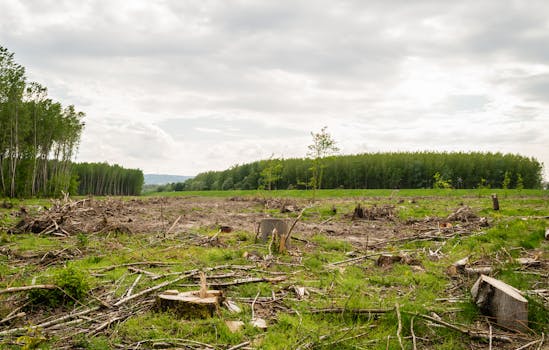
Climate change is one of the most pressing issues of our time, affecting every aspect of our planet’s ecosystems. As the Earth’s temperature rises, the impact on global ecosystems becomes increasingly evident. In this article, we will delve into the various ways climate change influences biodiversity, habitat loss, and the overall ecological balance.
Biodiversity and Climate Change

One of the most significant impacts of climate change is on biodiversity. Species around the world are struggling to adapt to rapid environmental changes, leading to shifts in population dynamics and species distributions. For instance, many species are migrating to higher altitudes or latitudes in search of cooler temperatures. This phenomenon disrupts existing ecosystems and can lead to increased competition for resources.
Habitat Loss

Climate change is also a driving force behind habitat loss. As temperatures rise, certain habitats, such as coral reefs and polar regions, are particularly vulnerable. Coral reefs, which support a vast array of marine life, are experiencing bleaching due to rising ocean temperatures. Similarly, melting ice caps threaten the habitats of polar bears and other Arctic species. The loss of these critical habitats not only affects the species that inhabit them but also has cascading effects on the entire ecosystem.
Ecological Balance

Ecological balance is essential for maintaining healthy ecosystems. Climate change disrupts this balance, leading to altered predator-prey relationships and the introduction of invasive species. For example, as temperatures rise, we may see an increase in pests and diseases that can decimate native species. This shift can lead to a decline in biodiversity and affect ecosystem services such as pollination and nutrient cycling.
Conclusion

In conclusion, the impact of climate change on global ecosystems is profound and multifaceted. From biodiversity loss to habitat destruction and disruption of ecological balance, the consequences are far-reaching. Addressing climate change is critical not only for the survival of various species but also for the health of our planet. It is imperative that we take action to mitigate these effects and protect our ecosystems for future generations.





